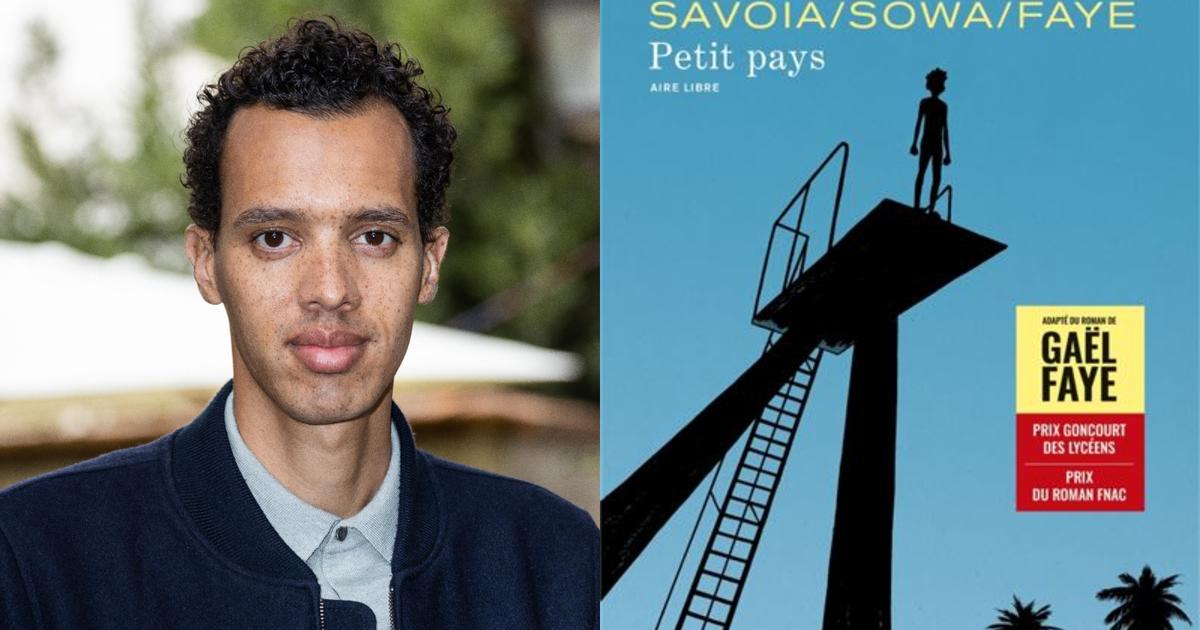The Argentine Claudia Piñeiro (Burzaco, 62 years old) knows well how strange the paths of literary creation can be.
She, an ex-convict in search of a second chance and obsessed with certain insects, has served as the axis for
El tiempo de las moscas
(Alfaguara), a novel with which she has managed, once again, to stretch the margins of the noir genre, build a criminal plot without fail and denounce the injustices committed, above all, against women.
But the story of this novel begins in 2005, when she broke into the literary world with
Tuya
(Alfaguara), a brief and brutal work starring a woman willing to do anything to preserve appearances and her privileged class status.
For years he did not think of continuing with the story of Inés Pereyra: it was not the type of crime novel that he cultivated.
They followed works such as
Elena sabe
(2006, finalist for the Booker Prize in 2022),
Betibú
(2011) or
Cathedrals
(2021 Dashiell Hammett Award).
In all of them there were strong female characters, but not a trace of the protagonist
Tuya
, who continued to be read in Argentine high schools and acquired, in years of the female revolution and the fight for equality, a different dimension.
“During the pandemic, in that detained time, I began to do calculations to see if I could be out of jail and then I began to wonder what happens with this woman who was so macho, who was so sure of how a woman has to be, that he ends up in a prison with very different women and that he comes out to a radically different world 15 years later.
And she has to learn to be a woman again and there, seeing the difficulties of the character, I began to get excited.
But it is Guillermo's idea, ”he commented to this newspaper on Monday in a restaurant near the Madrid headquarters of his publishing house.
Guillermo is Guillermo Martínez, Argentine author and friend of Piñeiro.
It was he who had put him on the trail years before, after having used
Tuya
for a literature course in the United States.
The key to start?
Patricia Highsmith and her skillful Tom Ripley, a character who kills, deceives and manipulates, but the reader follows and empathizes with.
Piñeiro, minutes before starting the conversation with this newspaper.Samuel Sánchez
Disowned by her daughter and before by her mother, a confessed murderer, an ex-convict, a woman who "has decided to see", owner of a body that cannot be touched by anyone and an uncertain destiny, Inés earns a living with a fumigation and He shares offices with La Manca, the only woman he became friends with in prison.
Faced with the bumps of a life that does not quite get ahead, the two are presented with a criminal opportunity that will put them out of misery or return them to jail.
Little more can be said about a novel that the author acknowledges that it was difficult for her to put together due to the large number of elements and twists and that she skilfully plays with the expectations and fears of the reader.
Piñeiro, winner of the 2019 BCNegra Pepe Carvalho Award, acknowledges that he makes an “
increasingly feminist
noir ”.
She battles with words as a weapon and is aware of the power of the tool in her hands.
“Feminism has to be intelligent so as not to go to a place where they are going to close a door on you.
If you go to a place that is too disruptive, maybe they won't even read you, and if they don't read you, you
ca
n't tell anything.
Following more winding paths
you
get to put what you
want
tell, but in a more accessible way for the reader”.
Now, the social question is not a matter of militancy, or not only.
The great themes are inevitable in a work anchored to reality.
“They interest me because it is what these characters find on the street.
They are contemporary, they walk and are in the time in which I live.
And if I don't talk about those issues, if I don't talk about inclusive language or femicides, as long as they are relevant to the plot, I would be lying, splitting off a part of reality, it wouldn't be my time.
It is not militancy, it is being faithful to what I am counting on, ”she defends.
Who to kill and who not
The time of the flies
It could be a typical crime novel, one of those that can be read in one sitting, because the genre architecture that runs underneath works, but Piñeiro brings two disruptive, risky elements that cut and enrich the narrative.
On the one hand, the voice of Inés recounting curiosities and scientific data about flies, also present in other forms.
“Flies represent many things: in forensic entomology, for example, they are life that comes to explain, to tell you about, death.
The fly that Inés has in her eye, which is not even a fly, is the one that makes you focus on something.
But they have another function in the novel and that is that they allow you to reflect on whether there are people and animals that are okay to kill and others that are not okay to kill."
On the other hand, there are chapters in which a choir takes the floor, in the Greek style,
who comments on the adventures of Inés and La Manca.
“As the personal is political, they end up talking about politics, issues that affect women, feminism and from different points of view: the workforce, discrimination, death at the hands of homicides, maternity, transition.
There are a lot of things that are not left off the hook because the choir observes what happens to the characters and that theory is based on what happens in the plot”.
In this novel there are also bodies fighting for their territory, people looking for a place in a context of structural violence against the most disadvantaged, but, above all, it is the story of a friendship.
“Today the reader can read a friendship story between two women and it can be a man, a woman, whatever.
For a long time it was not like that.
I think Elena Ferrante broke with that.
A man can be moved by this story.
They are alone in the world, it is sad and at the same time hopeful”.
Claudia Piñeiro with Marcelo Piñeyro on the set of the series 'El reino'. Pablo Franco/Netflix
The author of
Las viudas de los jueves
has motherhood as one of her recurring themes.
Here, Laura, daughter of Inés, is for her children her mother who never knew how to be the protagonist for her.
This is how the author summarizes the conflict: “In
Tuya
, Inés said that she was a perfect woman and mother, with a perfect family, and it was all a lie.
She now says that she is not interested in her maternity and that she does not feel like a mother.
Since she recognizes it, it is that she may have a bond with her daughter.
Before it was fiction.
Not all maternity hospitals are the same, nor are all mother-daughter bonds the same nor do they have to be”.
Entangled in the promotion of this novel and the imminent premiere of the second season of
El reino
(a political
thriller
for Netflix that she created together with Marcelo Piñeiro), she is not considering making a third installment of the misadventures of Inés for the moment and she has no another novel in hand.
She waits, she assures, for "the triggering image to appear", a kind of
flash
that the author lets "macerate" and then "wind up" and "pull the thread" that will be a story.
They are the inscrutable paths of creation.
Subscribe to continue reading
Read without limits
Keep reading
I'm already a subscriber

/cloudfront-eu-central-1.images.arcpublishing.com/prisa/5U4CHULN7JAODERALRDMYJGVCM.jpg)



/cloudfront-eu-central-1.images.arcpublishing.com/prisa/ZH3EF5RDTZBMMCYSAYHHFHYUHU.jpg)



